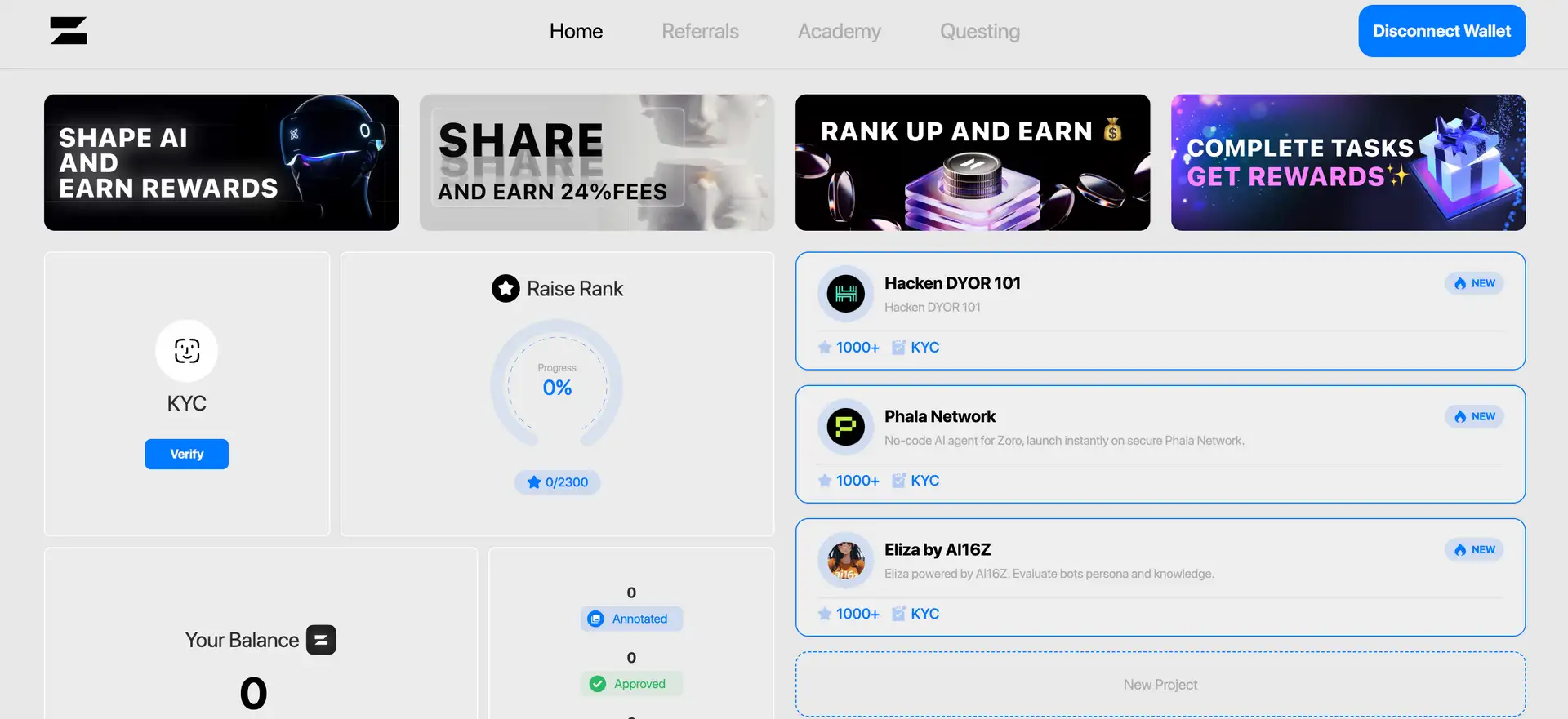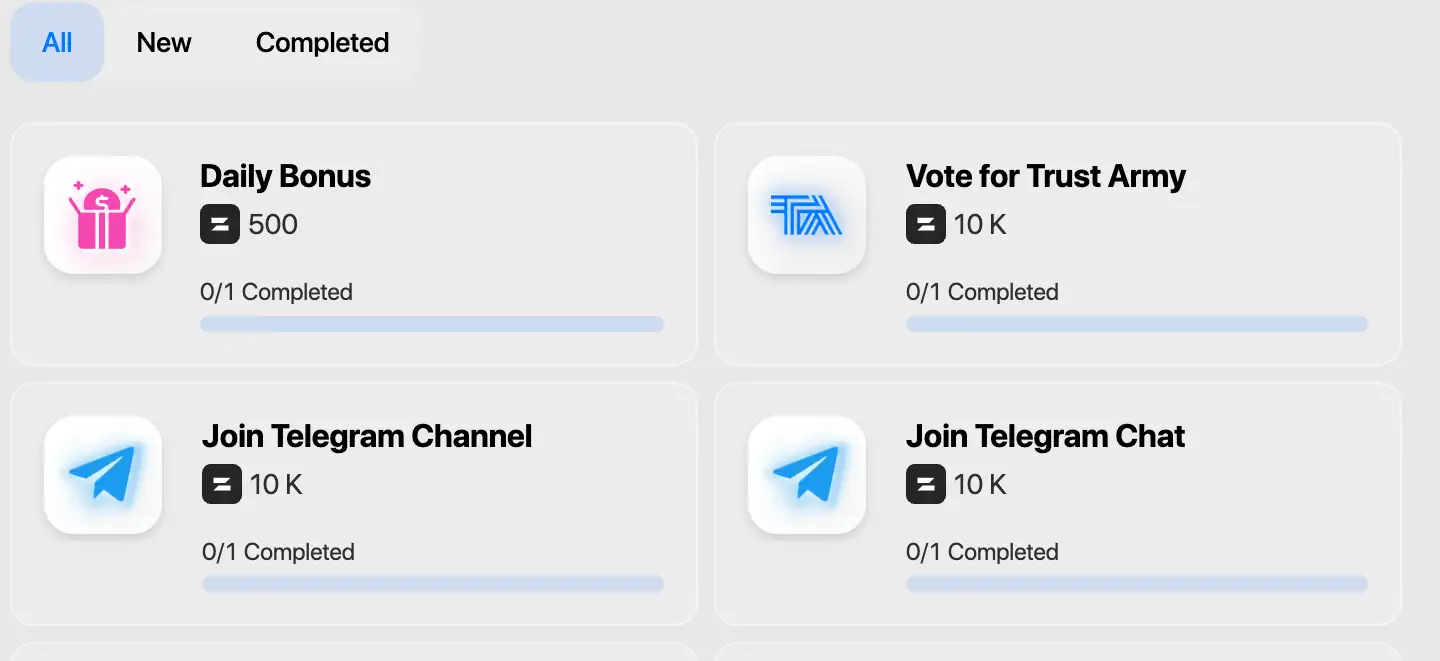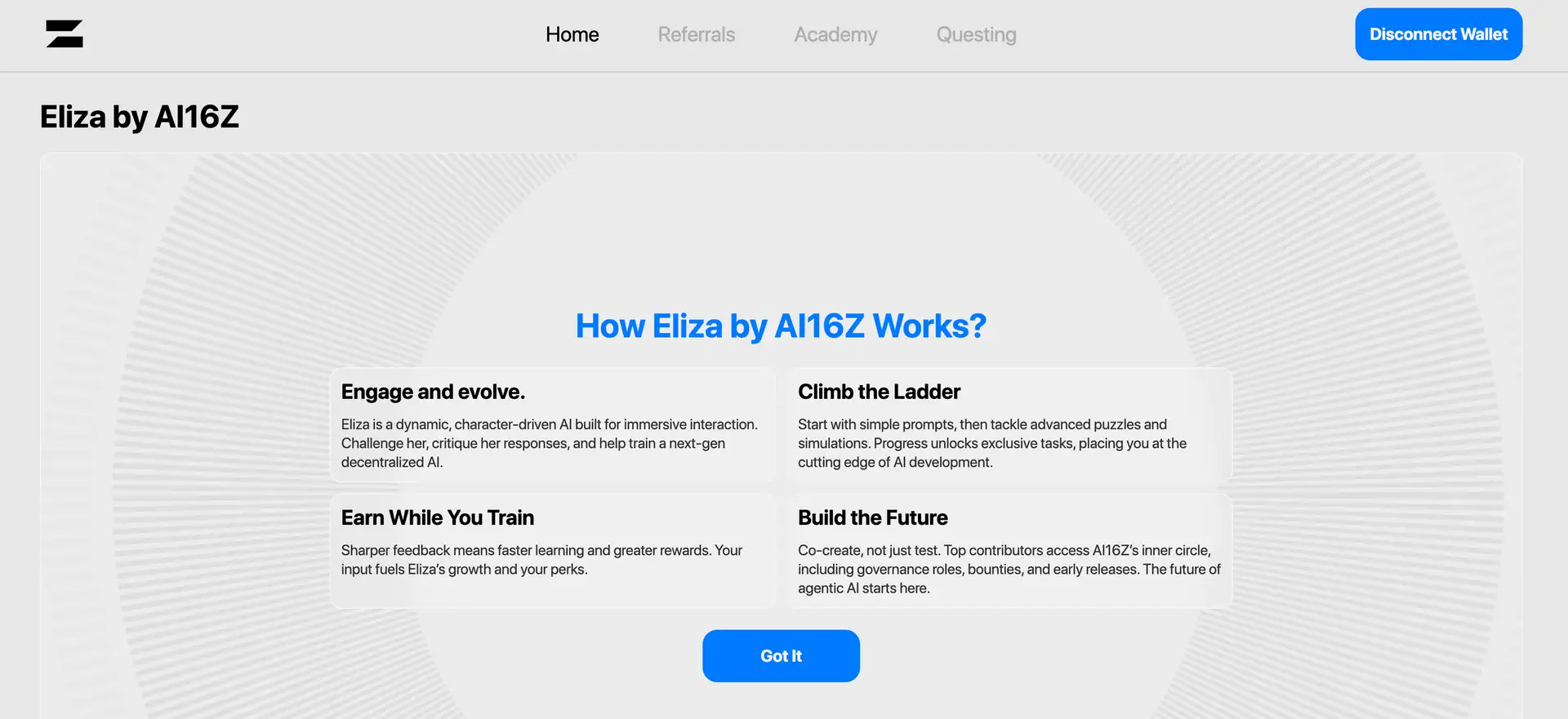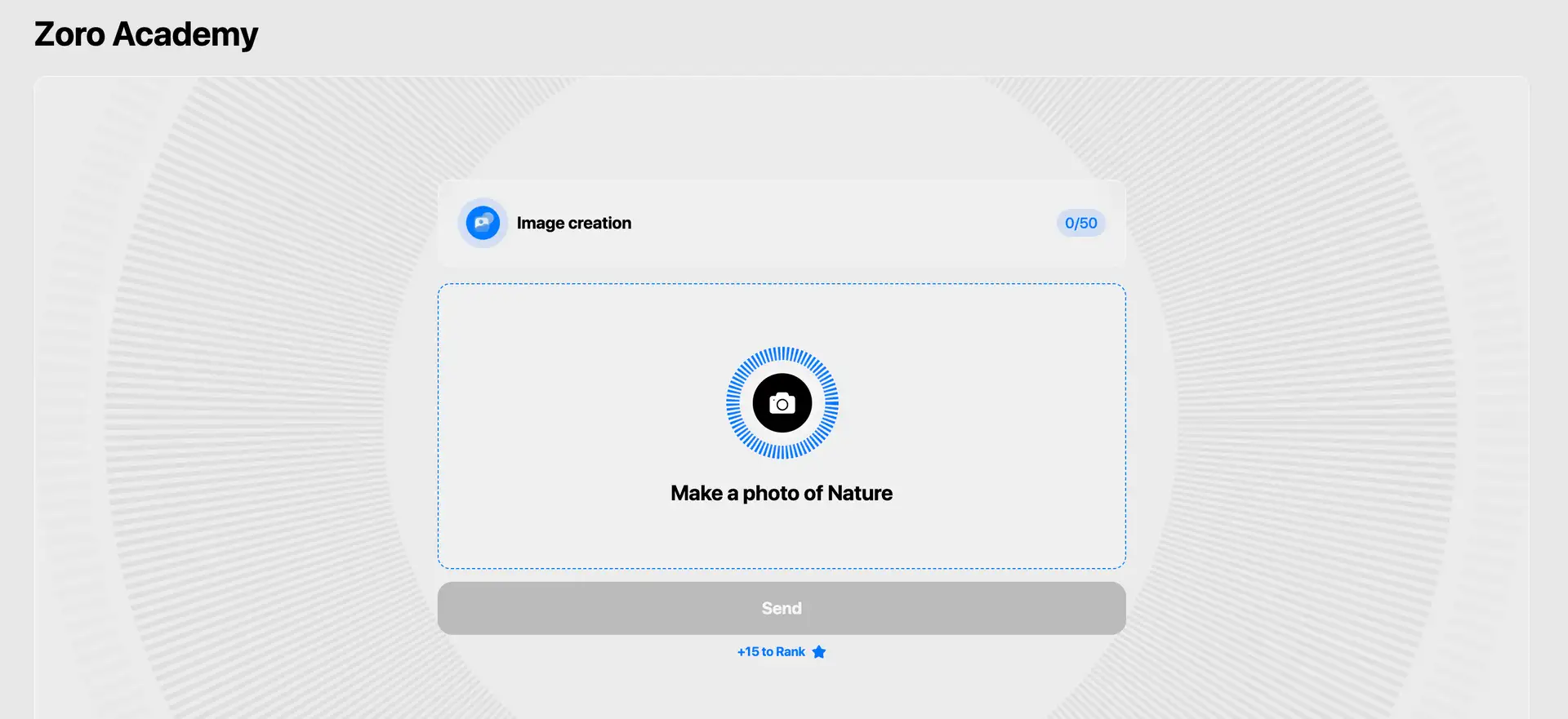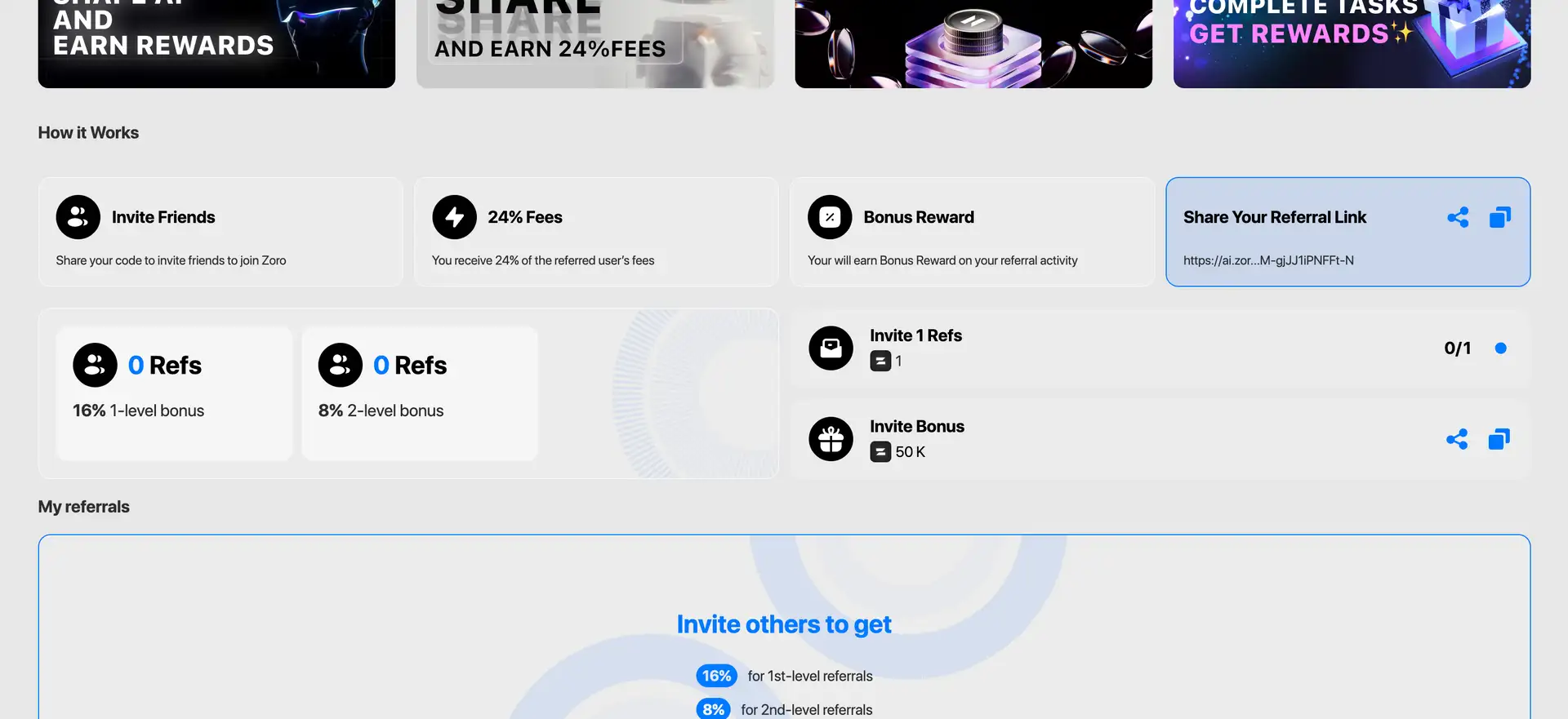About ZORO
ZORO is a zero-knowledge-powered infrastructure for decentralized AI training, designed to make artificial intelligence more transparent, efficient, and accessible. Unlike conventional platforms that rely on centralized labor for data labeling, ZORO replaces outdated structures with a protocol-based, community-driven engine. Users around the world can participate in training, validating, and improving AI models—all with cryptographic proof, on-chain memory, and token-based rewards. ZORO enables a new era of intelligent systems powered by real people, real data, and real ownership.
Built by ZoRobotics Technologies, ZORO transforms data into a programmable asset and positions the blockchain as a verifiable memory layer for AI agents. The protocol is designed to support everything from biometric data ingestion to chat-based inference, physical robotics training, and DAO-controlled AI governance. With support for physical AI devices, real-world sensors, and decentralized arbitration, ZORO empowers users to build, interact with, and audit AI models in a secure and user-controlled environment.
ZORO reimagines how we produce and validate data for machine learning. At its core, the platform introduces a decentralized alternative to traditional annotation services, allowing contributors to perform tasks such as labeling, validating, and arbitrating AI training data. All contributions are logged with zero-knowledge proofs (ZKPs), which enable transparent verification without revealing private data. Contributors are matched to tasks based on skill level, reputation score, and DAO-governed workflows.
The system operates without central intermediaries. Instead, it is governed by a DAO (Decentralized Autonomous Organization), where stakeholders vote on decisions ranging from protocol upgrades to validator roles. Each AI task flows through a permissionless engine that handles distribution, review, validation, and arbitration. If validators disagree, disputes escalate to quorum-based arbitration, with final decisions immutably recorded on-chain.
ZORO also introduces a model marketplace and SDK infrastructure that allows developers to create wallet-native AI agents, train on encrypted real-world data, and sync behaviors across devices. These agents are persistent, programmable, and capable of learning from biometric inputs streamed from smart rings, wearables, and sensors. All sessions and decisions are recorded as immutable state, allowing for on-chain replay, auditability, and continual learning.
In a growing ecosystem of decentralized AI platforms, ZORO stands apart from projects like Mecka.ai, Grass, or Hivemapper by offering not just domain-specific tooling, but a full-stack protocol for general-purpose AI data infrastructure.
As of 2025, ZORO has processed over 1 million training tasks with more than 200,000 contributors and is rapidly evolving toward launching its own native AI agents and model marketplace. The roadmap includes support for cross-chain operability, biometric validation, robotics integration, and scaling up decentralized model deployments—all governed transparently via the ZORO DAO.
ZORO introduces an innovative suite of features and benefits that make it a core infrastructure layer in the AI and Web3 space:
- Zero-Knowledge Proof Validation: Every contribution is recorded and verified via ZKPs, maintaining privacy without sacrificing data quality.
- Decentralized Task Engine: Contributors receive dynamic tasks and rewards based on skill, performance, and demand.
- DAO Governance: The ZORO ecosystem is fully community-governed, with token holders controlling all major decisions.
- Biometric & Physical AI Integration: Real-world data from devices like smart rings and wearables can be used to train models directly on-chain.
- Agent Creation & SDKs: Developers can deploy wallet-native AI agents that learn from user behavior and persist across platforms.
- Global Access: Multi-platform tools, including a Telegram interface, enable participation from any device or location.
- Merit-Based Earning System: Reputation-driven tiers unlock better tasks and higher rewards for verified contributions.
ZORO provides a frictionless path for users to join the AI-on-Chain movement:
- Visit the App: Head to ai.zoro.org and click “Launch App.”
- Connect Your Wallet: Use any supported Web3 wallet (e.g., MetaMask) to register and authenticate.
- Complete Onboarding: Participate in an interactive training sequence that evaluates your skill level and assigns your first set of tasks.
- Start Contributing: Annotate, validate, or arbitrate AI data using the intuitive interface or lightweight Telegram bot.
- Earn & Progress: Earn ZORO tokens for validated contributions. Improve your reputation score to unlock advanced tasks and governance rights.
- Explore Developer Tools: Access the SDK, inference APIs, and agent builder to create custom AI workflows.
ZORO Reviews by Real Users
ZORO FAQ
ZORO uses zero-knowledge proofs (ZKPs) to enable validation of tasks without exposing user identities or sensitive data. When contributors complete annotation or validation jobs, a ZK attestation is created and submitted on-chain. This proof includes metadata hashes, task origin, consensus results, and compliance logic, allowing external parties to confirm the authenticity and quality of data without accessing its content. This ensures privacy-preserving accountability across the entire network. Learn more at ai.zoro.org.
Unlike centralized AI pipelines that rely on static teams and opaque QA processes, ZORO uses a rank-based, multi-party validation system. Tasks are reviewed by multiple independent validators. If there’s disagreement, they escalate to DAO arbitration. Every step is enforced by smart contracts and stored on-chain. The result is a scalable, traceable, and tamper-resistant system for producing high-quality training data for machine learning. See full details on ZORO’s platform.
Yes. ZORO allows any user with a supported device and Web3 wallet to earn ZORO tokens by completing microtasks like annotation, validation, and arbitration. As tasks are confirmed via ZK validation, contributors receive token rewards based on task difficulty and performance. There’s also a tier system where users can increase their earning potential by maintaining high quality scores. Start contributing at ai.zoro.org.
ZORO employs a combination of reputation scoring, multi-party consensus, and DAO-based arbitration to safeguard data quality. Each validator’s accuracy is tracked over time, and low-performing users lose access to higher-value tasks. Task reviews are anonymous and cryptographically verifiable, reducing manipulation. Conflicts are resolved via a quorum-based arbitration layer. This protocol-native quality assurance makes ZORO more resilient than traditional labeling systems. Visit ai.zoro.org to explore how the system works.
The ZORO token acts as a utility, governance, and coordination asset within the protocol. It’s used to pay contributors, access AI models, upgrade skill tiers, and vote in DAO governance. The token economy operates in a closed loop: buyers pay to access validated datasets or AI inference, and a portion of these funds is used to buy back tokens and reward contributors. Access to features like memory syncing, profile conditioning, and zk-attestations is gated by token ownership. Read more at ai.zoro.org.
You Might Also Like










